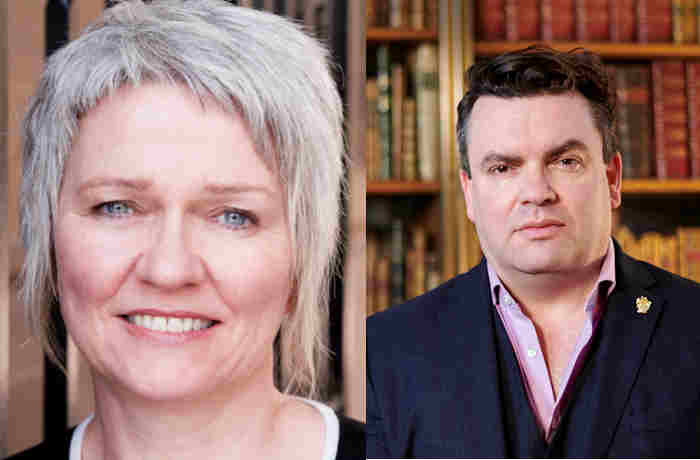
Colette Fagan and Chris Pressler: A position statement on Open Research
Professor Colette Fagan, Vice-President for Research, Professor Chris Pressler, John Rylands University Librarian and Director of The University of Manchester Library and Scott Taylor, Open Research Programme Lead discuss the importance of open access research.
Fostering the conditions for more open forms of scholarship at our University is a priority in the Research and Discovery theme of the Our Future strategy.
The COVID-19 outbreak has reinforced the importance of free and unrestricted access to reproducible research data and publications. So I am pleased to share our University’s position statement on open research. This statement contains a set of shared principles that will guide us as we establish ourselves as a University with openness as one of the defining features of our research environment.
Open research encompasses several interconnected components across the research life-cycle. To date, our policies, infrastructure and services have focused on removing barriers to accessing research articles and data. Our position statement broadens our intent and encourages sharing of a wider range of research outputs including registered reports, research protocols, methodology and code.
There is a pressing need for large research-intensive institutions like ours to intentionally move open research practices from the fringe of some of the things we do to the heart of everything we do. Failures in replication of scientific experiments, unsustainable publishing costs and increased public scrutiny have all contributed to concerns that parts of the current system are not serving society well enough.
So along with a growing number of the world’s leading research institutions, our University is modernising our infrastructure to put us on a path towards a more collaborative, equitable, and transparent research environment.
Open research creates more possibilities for collaboration and so the programme will also support the aim in Our Future to accelerate our interdisciplinary research, and to produce a step change in our high-quality research through international collaboration.
As we embark upon this path we will ensure that everybody has access to the highest quality training on how to conduct more open and transparent research, that open research practices are valued in our recruitment and promotion systems, including collaborative contributions by all members of research teams; and that disciplinary differences are accommodated. By doing so we will ensure that our research continues to receive the maximum possible attention and impact in a rapidly changing global environment for research and engagement.
Libraries have always been a pillar of open societies, so it’s fitting that our Library is leading a programme to support the principles set out in our position statement. Under the governance of the Open Research Strategy Group, the Library will develop an open research roadmap that will be produced in partnership with our research community and other professional service colleagues. Together we will expand, strengthen, and connect communities across the University who already adopt and promote open research practices, and ensure that their efforts and vision are co-ordinated into a broader organisational approach. The programme will align with, and be enhanced by, outputs from strategic change programmes such as the Research Lifecycle Programme and the Student Experience Programme.
Building the tools, services and infrastructure is the beginning of the journey. The biggest challenges will be around transforming our culture; namely that our commitment to open research as a defining feature of our research environment becomes embedded in how we work and share our research outputs. By fully embracing the principles set out in our position statement on open research, we have the opportunity to develop a new and more collaborative approach in our research which is fully aligned to our University’s purpose of advancing education, knowledge and wisdom for the good of society.



0 Comments